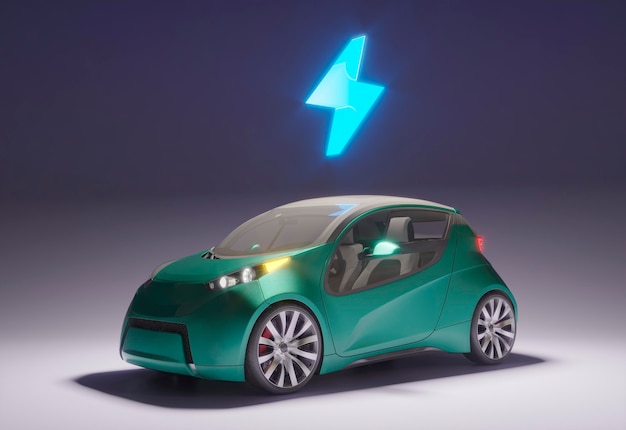Electric Vehicles: The Future of Driving
Mia Wilson

Photo: Electric Vehicles: The Future of Driving
The global automotive landscape is undergoing a paradigm shift as electric vehicles (EVs) emerge as a promising alternative to traditional internal combustion engine (ICE) vehicles. Environmental concerns, technological advancements, and supportive government policies are driving this transition. But what makes EVs the future of driving? This article delves into the reasons behind their rising popularity, the challenges they face, and their potential to redefine transportation.
The Rise of Electric Vehicles
1. Environmental Benefits
One of the most compelling reasons for the growing adoption of EVs is their environmental impact. Unlike ICE vehicles, EVs produce zero tailpipe emissions, significantly reducing greenhouse gas emissions and air pollutants. This advantage aligns with global efforts to combat climate change and improve urban air quality.
2. Technological Advancements
Advancements in battery technology have dramatically increased the efficiency, range, and affordability of EVs. Lithium-ion batteries, which power most EVs, have seen consistent improvements in energy density and cost reduction. Innovations in charging infrastructure, such as ultra-fast chargers, make EVs more convenient for everyday use.
3. Policy and Incentives
Governments worldwide are incentivizing the adoption of EVs through subsidies, tax credits, and infrastructure investments. Countries like Norway, Germany, and China are leading the way with ambitious targets for phasing out ICE vehicles and promoting EV adoption.
Overcoming Challenges
1. Range Anxiety
A common concern among potential EV buyers is ""range anxiety,"" the fear that an EV will run out of charge before reaching its destination. While advancements in battery technology are addressing this issue, comprehensive charging infrastructure is essential to alleviate these concerns further.
2. Initial Costs
While EVs offer long-term savings on fuel and maintenance, their upfront costs remain higher than ICE vehicles. However, declining battery costs and increasing production scale are steadily narrowing this gap.
3. Charging Infrastructure
A robust and widespread charging network is critical for the mass adoption of EVs. Governments and private entities are collaborating to establish charging stations in urban and rural areas, but the pace of development varies across regions.
The Economic Impact of EV Adoption
1. Job Creation
The EV industry has the potential to create millions of jobs in manufacturing, research and development, and infrastructure. Companies like Tesla, Rivian, and traditional automakers pivoting to EV production are already generating employment opportunities worldwide.
2. Energy Independence
Widespread EV adoption can reduce dependence on fossil fuels, enhancing energy security for nations. Renewable energy sources, such as solar and wind, can further power EVs sustainably.
3. Market Growth
The global EV market is expected to grow exponentially, with analysts predicting a compound annual growth rate (CAGR) of over 20% in the coming years. This growth represents opportunities for businesses and investors in the EV ecosystem.
The Role of Autonomous Electric Vehicles
Autonomous driving technology and EVs are converging to shape the future of mobility. Self-driving EVs can enhance efficiency, reduce traffic congestion, and lower transportation costs. Companies like Waymo and Cruise are pioneering this intersection, showcasing the potential of fully autonomous electric fleets.
Consumer Adoption Trends
1. Awareness and Education
Public awareness campaigns are crucial for dispelling myths and educating consumers about the benefits of EVs. Automakers are investing in marketing strategies to highlight the advantages of EV ownership.
2. Variety of Models
The growing variety of EV models from compact cars to luxury SUVs ensures that there is an EV for every consumer segment. This diversity is making EVs more accessible and appealing.
3. Cultural Shift
As more people embrace sustainability and environmental responsibility, EV ownership is becoming a symbol of forward-thinking and eco-conscious living. This cultural shift is influencing consumer choices and accelerating EV adoption.
Conclusion
Electric vehicles represent more than just a technological innovation they embody a transformative movement toward sustainable and efficient transportation. While challenges such as range anxiety and charging infrastructure persist, advancements in technology and supportive policies are steadily addressing these hurdles. The future of driving is undoubtedly electric, promising cleaner cities, economic growth, and a healthier planet.
Embracing EVs is not just a choice for individuals but a collective step toward a sustainable future. As technology and infrastructure evolve, the journey to a fully electrified transportation system is becoming increasingly attainable. The time to accelerate this transition is now.
For You
View AllExplore the surprising benefits of sun exposure for your health and well-being. Embrace the sunshine today!
Mia Wilson
Adopt healthy eating habits with our top 10 tips. Transform your diet and boost your health today! Click to discover how.
Mia Wilson
Ready to refinance your home loan online? Follow this step-by-step guide to secure the best rates and streamline the process!
Mia Wilson
Learn about the risks and rewards of AI and how it's impacting society.
Mia Wilson
Compare carbon fiber and aluminum for car construction. Discover the pros, cons, and ideal use cases of each material today!
Mia Wilson
Learn the steps to becoming a certified diabetes educator and making a meaningful difference in patients’ lives. Start today!
Mia Wilson
Health










Education
View All
May 29, 2025
How Technology Has Changed Education
Discover how technology is revolutionizing education, enhancing accessibility, and transforming classrooms. Learn more now!

April 27, 2025
How to Become a Special Education Teacher
Explore the steps to becoming a special education teacher and making a difference in students’ lives. Start today!

May 20, 2025
What Is Philosophy of Education?
Dive into the philosophy of education, its principles, and how it shapes teaching and learning. Explore its impact today!




